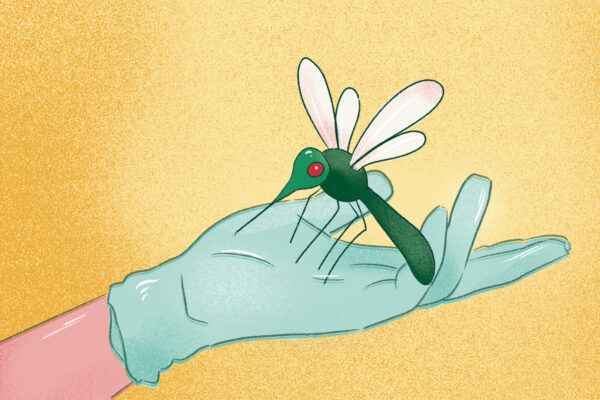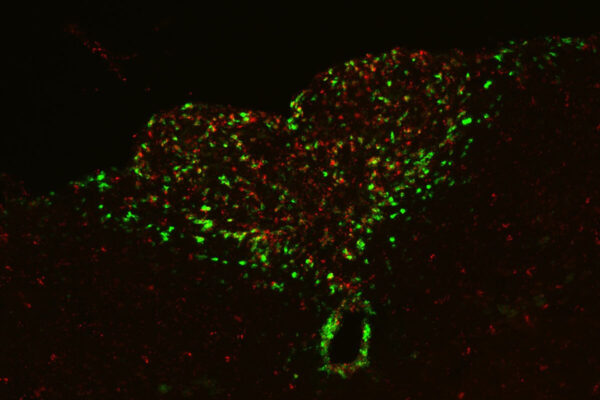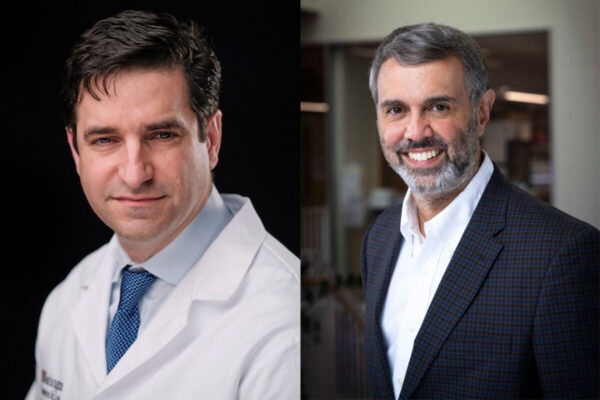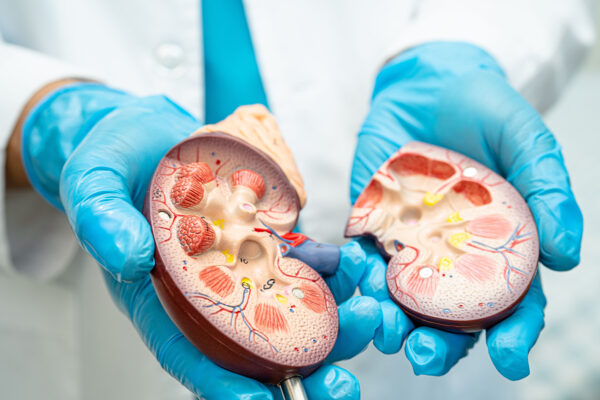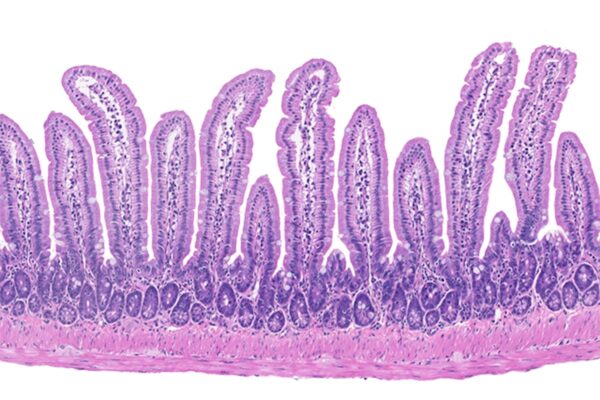Passionate about supporting WashU
Great medical school mentors shaped Jay Kaiser’s career as a radiologist. Now, he and his wife make sure other aspiring physicians can have the same experience.
Preparing for future pandemics
Two new grants support efforts at WashU Medicine to design vaccines, drugs for understudied virus families.
A compassionate leader unties the knots of health care
As a health-care executive, alumna KMarie King, MD, follows a set of principles: ‘Be kind, have integrity and the patient comes first.’
Alternative to hip replacement keeps aging athletes in the game
WashU Medicine surgeons led a long-term study that showed patients who received a hip resurfacing procedure maintained a higher level of athletic activity years after their surgery than those who received a total hip replacement.
Brain pathway links inflammation to loss of motivation, energy in advanced cancer
Researchers at WashU Medicine described, in mice, a brain pathway that connects the loss of motivation characteristic of advanced cancer to cancer-related inflammation and identified opportunities to block this pathway and restore motivation.
Leuthardt, Mitra selected as AIMBE fellows
WashU Medicine’s Eric C. Leuthardt, MD, and Robi Mitra, PhD, have been named fellows of the American Institute for Medical and Biological Engineering.
Baldridge receives Global Grant for Gut Health award
Megan Tierney Baldridge, MD, PhD, an associate professor in the Department of Medicine at WashU Medicine, received a $100,000 grant to explore the interactions between the viruses that infect bacteria, known as bacteriophages, and human intestinal epithelial cells.
Harnessing mechanobiology to combat kidney disease
Researchers at Washington University have received a $4 million grant to study specialized cells that could help treat kidney disease.
Researchers find intestinal immune cell prevents food allergies
Researchers at WashU Medicine found that a small population of immune cells in the mouse intestine prevents allergic responses to food, suggesting that targeting such cells therapeutically could potentially lead to a new treatment for allergies.
Study uses body’s clock to deliver medication precisely when needed
Researchers at WashU Medicine have harnessed the internal circadian clock of the body to deliver medication for an inflammatory illness precisely when it was most needed.
View More Stories

